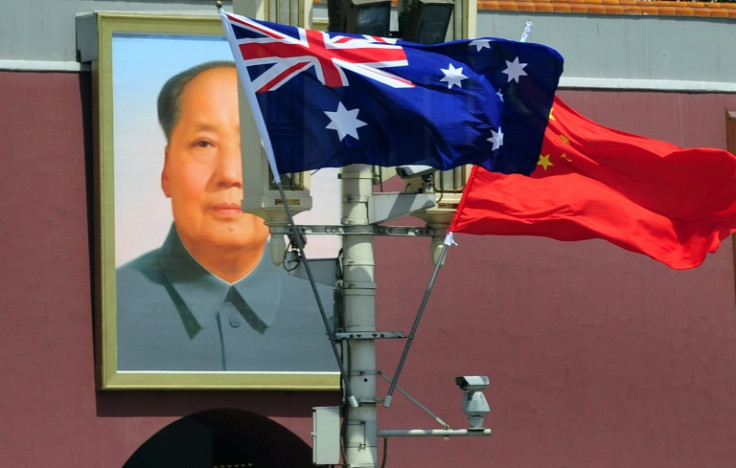
China on Thursday announced the lifting of punitive tariffs on Australian wine, in a sign that the precarious bilateral relationship could be improving despite setbacks.
Here is a look at China-Australia ties over recent years:
Beijing has said Canberra fired "the first shot" in the deterioration of relations when, in 2018, it effectively banned Chinese telecom giants Huawei and ZTE from rolling out Australia's 5G network over security concerns.
The move followed growing Australian disquiet over Chinese influence in its domestic politics, as well as in its traditional sphere of interest in the South Pacific.
In April 2020, Australia joined the United States in calling for a thorough investigation into the origins of the Covid-19 pandemic.
The announcement triggered an outraged response from the Chinese ambassador, who warned it could lead to consumer boycotts of Australian products.
Beijing suspended imports from four major Australian beef suppliers weeks after the ambassador's warning.
Neither side openly linked the suspension to the call for an inquiry, citing technical issues instead.
However, China soon after announced anti-dumping tariffs on barley, as well as timber and later wine.
Australia further enraged Beijing when it was among Western countries that accused China of violating its legally binding international commitments on Hong Kong, after the imposition of a tough security law on the city in June 2020.
Canberra also offered pathways to citizenship or residency to Hong Kongers looking to leave because of the new law.
Tensions spiralled further over the detention by China of two high-profile Australian citizens: Chinese-Australian dissident writer Yang Jun in 2019 and journalist Cheng Lei in 2020.
Two other Australian journalists were rushed out of China in September 2020 after police sought to question them.
That year, Beijing also accused Canberra of raiding Chinese journalists' homes as it investigated an alleged covert influence campaign.
Australia revoked in April 2021 the Victoria state government's deal to join the sprawling Belt and Road infrastructure programme, a central pillar of leader Xi Jinping's bid to expand China's influence overseas.
Canberra said the deal did not meet national foreign policy priorities but the Chinese embassy said its scrapping was "unreasonable and provocative".
Australia elected a new government in May 2022 and with it a less confrontational tone on China.
A meeting in November that year between Xi and Labor Prime Minister Anthony Albanese was the first meeting between top Australian and Chinese leaders in more than five years.
China halted an import ban on timber, resumed shipments of coal and dropped tariffs on Australian barley as other stalled dialogue resumed over the course of 2023.
Suspensions were also lifted on three major red meat abattoirs.
Cheng, the jailed journalist, was released from prison in October after more than three years in detention.
The high point of recent relations came in November 2023 when Albanese visited Beijing and was treated to a gala welcome.
A smiling Xi promised Australia and China could become "trusted partners" and collaborate on everything from climate change to regional security.
Premier Li Qiang went one step further, calling Albanese a "handsome boy" in reference to a viral clip of the Australian leader jogging.
Albanese met Xi for the second time that month on the sidelines of a summit in San Francisco.
He said he had invited Li to visit Australia and that he had asked Xi to remove remaining trade restrictions on Australian products.
However, just days later, the two sides exchanged charges of reckless behaviour following an incident off Japan in which Canberra said a Chinese warship emitted sonar pulses that injured one of its naval divers.
Beijing told Canberra its accusations that a Chinese destroyer had acted aggressively towards the Australian frigate were unfounded.
Beijing confirmed in February that writer Yang had been sentenced to death with a two-year suspended execution and had all his property confiscated.
Australia conveyed dismay but also "outrage at this verdict", Albanese said.
Yang, whose pen name is Yang Hengjun, was detained on spying allegations.
The writer has denied the accusations and claims he has been tortured by Chinese authorities.
China's commerce ministry said on Thursday it was lifting punitive tariffs on imports of Australian wine, a move that Canberra's top politicians said would "benefit both Australian producers and Chinese consumers".
The decision came days after a meeting between Chinese and Australian foreign ministers.
Australia in return said it would discontinue legal proceedings against China at the World Trade Organization.







